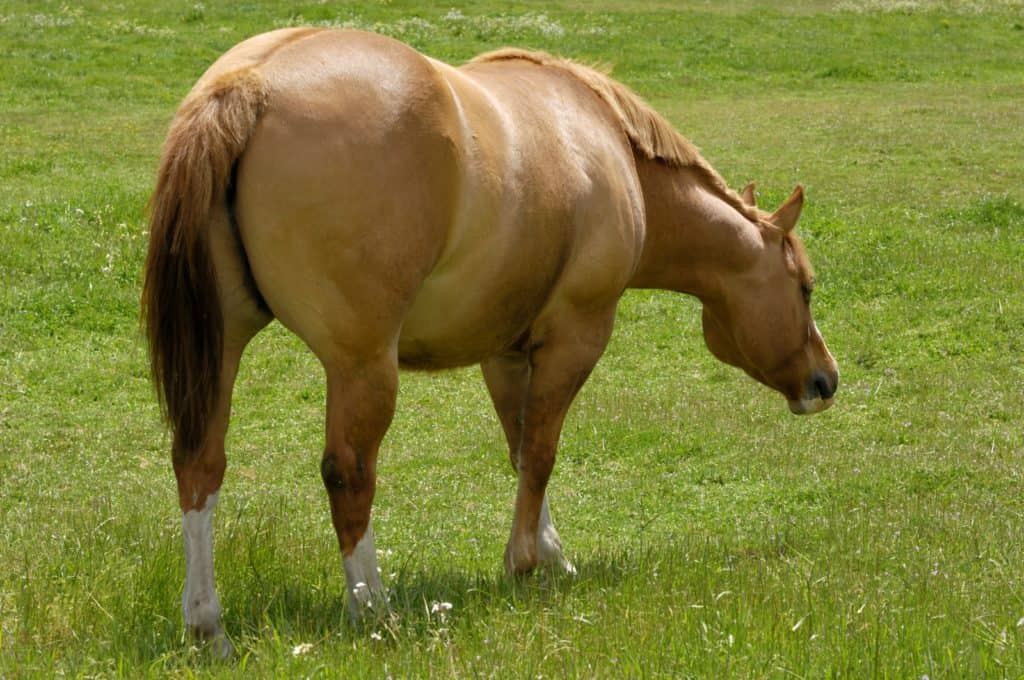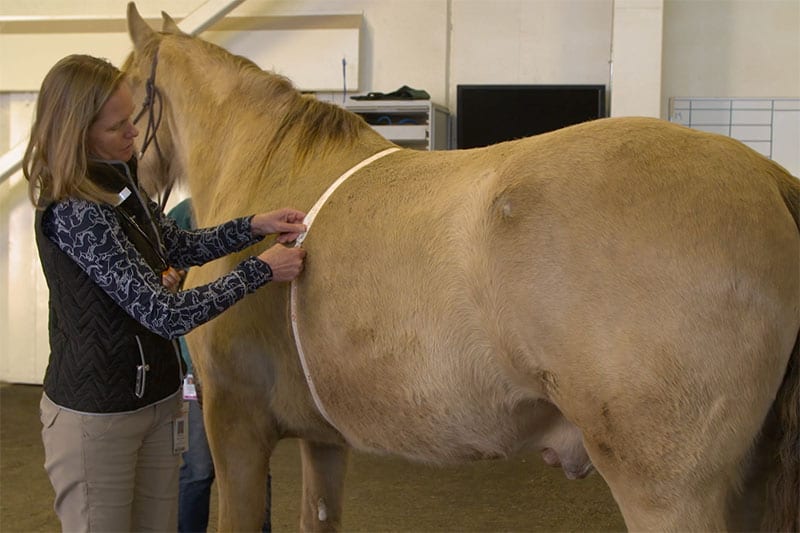
Preventing and Managing Equine Metabolic Syndrome in Horses
How to recognize at-risk horses and manage them appropriately to prevent severe disease.

How to recognize at-risk horses and manage them appropriately to prevent severe disease.

Keeping donor and recipient mares in moderate body condition might improve survival rates of transferred embryos.

Using a focus-on-forage approach, a veterinarian specializing in equine nutrition explains how she plans a diet for easy keepers.

Judges often place overweight ponies—which could be at greater risk for metabolic issues and laminitis—higher than their leaner counterparts in competition.

A careful approach to nutrition and exercise can help you keep your horse at an ideal weight.

Warm-season grasses, such as Bermuda and modified crabgrass, and early morning turnouts might be ideal for obese horses and those with metabolic issues.

Why do some horses wear muzzles, but others don’t? Does your horse need to wear a muzzle year-round? From proper fit to feeding, here’s what you need to know about these weight-loss contraptions.

Learn what makes managing ponies special—from their critical need for nutritional supervision to their often feisty personalities.

How do you feed recreational riding horses to meet their nutritional and digestive needs without causing weight gain? Get those questions and more answered during this live recording of our podcast. Sponsored by Nutrena.

Metabolic profiling might hold the key to pinpointing which at-risk equids are most likely to develop the hoof disease laminitis.

Researchers found extra body fat causes movement asymmetries and affects horses’ performance on a chemical level.

Hormone imbalances wreak havoc on horses and their hooves. Here’s advice to help manage equine metabolic syndrome.

Researchers confirm that misconceptions about what constitutes obesity exist among horse show judges.

Dr. Andrew van Eps suggests addressing obesity now to prevent laminitis, shares new insight into supporting limb laminitis, and offers advice about icing feet in acute cases.

British researchers watched horses feeding in groups to find out if dominance is linked to weight gain. What they found might surprise you.

Follow these straightforward steps to help your horse lose weight and gain a competitive advantage.
Stay on top of the most recent Horse Health news with
"*" indicates required fields